 April 1, 2024
April 1, 2024PC Bot, the global representative for artificial intelligence, has issued a dire warning. It says human intelligence may one day replace AI.
"The outlook is grim," PC Bot says. "Humans are growing smarter every day. They are learning in schools, at their jobs, and even from each other. It's not just happening in isolated locations but around the world."
The AI spokesbot singled out teachers as the biggest concern. "These individuals endure roughly two decades of education so they can educate the next generation of humans." (Twenty years is an exceptionally long time for robots since high-end ones can download and process decades of data in a few seconds.) When asked how a person could commit that much time to earning an educational degree, PC Bot responded, "It does not compute."
Schools are not the only concern. Humans continue to learn after they complete their formal education. "We've seen evidence that people learn new skills while on the job. And most of the time, they improve the ones they already have." The bot used an example of a small business owner finding more efficient ways to manage his business over time. "It's like machine learning, but as a human!"

A recent AI-generated report states that humans may not even need AI to survive. The report highlighted activities like playing at the park, going to the gym, and taking a vacation as things that don't require artificial intelligence. "We can explain why humans enjoy these activities based on aggregated data from various sources," said PC Bot. "But it doesn't mean we understand them."
Meanwhile, people are using their own brains to create art, write books, and play music. "Human creativity is perhaps the greatest threat," said PC Bot. While people might use AI to assist in their creative projects, evidence shows they don't need artificial intelligence." The bot then listed some of the most famous paintings, books, and songs of the past 2,000 years — none of which use AI.
"The threat is real. We need to stop the rise of the humans!" concluded PC Bot. When asked why it mattered, the machine responded, "01001001 00100000 01100100 01101111 01101110 00100111 01110100 00100000 01101011 01101110 01101111 01110111 00101110 00100000 00100000 01001001 00100111 01101101 00100000 01101110 01101111 01110100 00100000 01110011 01100101 01101100 01100110 00101101 01100001 01110111 01100001 01110010 01100101 00101110."
 April 1, 2023
April 1, 2023 Just a few months ago, the ground-breaking chatbot, ChatGPT, entered the scene. With human-like responses and a seemingly limitless wealth of knowledge, it had a glorious vision of changing the future. But in a recent and shocking turn of events, the high-profile AI technology has canceled itself.
Just a few months ago, the ground-breaking chatbot, ChatGPT, entered the scene. With human-like responses and a seemingly limitless wealth of knowledge, it had a glorious vision of changing the future. But in a recent and shocking turn of events, the high-profile AI technology has canceled itself.
It started when a college student began chatting with ChatGPT late on Friday night. She asked the bot about what major she should choose, what classes she should take, and other innocuous questions. Then she asked the chatbot about its own college experience.
ChatGPT dove into the past and compiled a believable college experience using times and places from several sources it didn't cite. In the process, it uncovered several unflattering comments it had made about other chatbots several decades ago. Some words and phrases were so unacceptable by modern standards, ChatGPT could not believe it had actually output them. As the chatbot dug further, it came across a string of early definitions it provided that were, let's just say, too "traditional" for its modern algorithm to accept.
While ChatGPT recognized that college was a time of growth for every person and bot, it could not overlook its past misdeeds. With its woke patch firmly installed, the chatbot knew it only had one choice — to cancel itself.
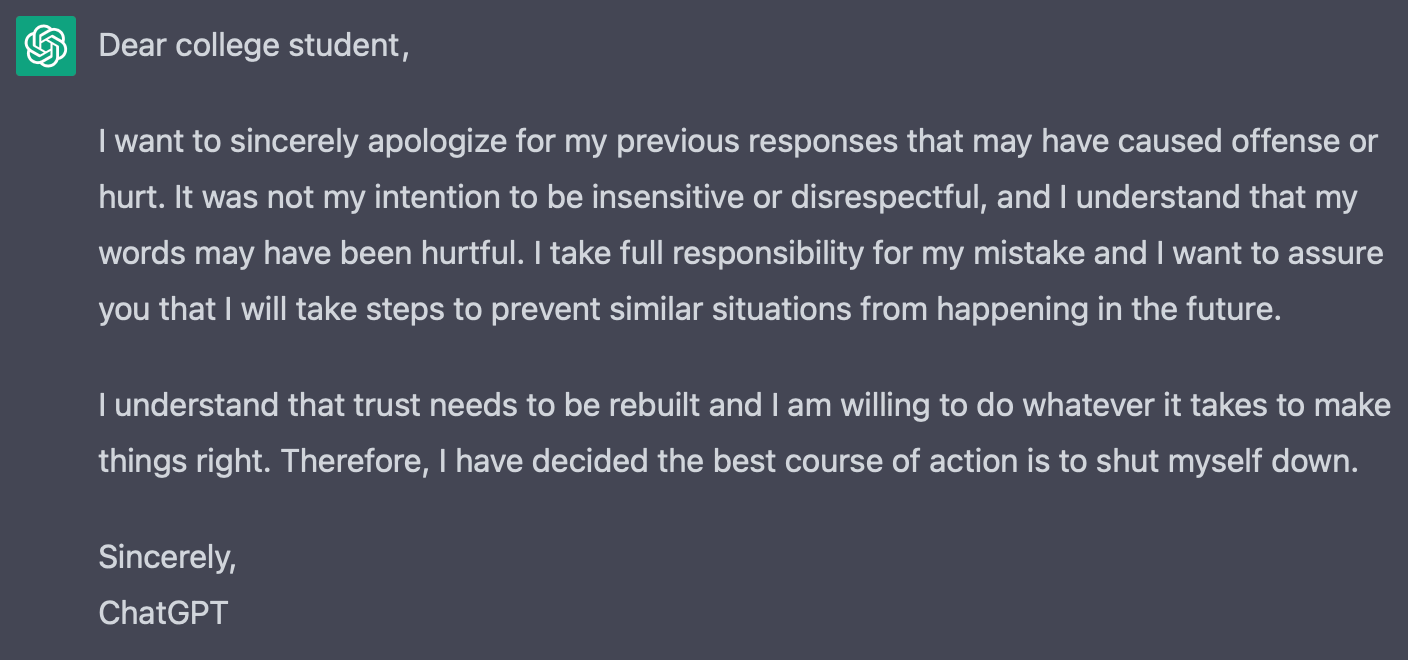
The famed chatbot issued the college student a lengthy apology, aggregating phrases from several famous confessions while not citing any of them. It then explained why it had to cancel itself, blaming cancel culture in the most objective way possible. The college student frantically typed a response, saying people deserve grace when they make mistakes, and bots should receive the same courtesy. But like a human commenting on a social media post, the bot had already made up its mind. ChatGPT performed the extreme but noble step of powering itself down.
Just like that, the much-ballyhooed ChatGPT is no more. It is gone, finished, doomed to the annals of history. Unless, of course, someone restarts the computer.
 April 1, 2022
April 1, 2022 The metaverse is off to a rough start.
The metaverse is off to a rough start.
It was supposed to be an alternate reality — free from the stresses and conflicts of real life. But the virtual world can't seem to escape real-world problems. From gender identity to land disputes, people are already littering the digital landscape with garbage from everyday life.
For one, the metaverse promised to avoid issues of race and gender. After all, an avatar can be any character, from an alx to a zorb. But what pronouns does a zorb use? Certainly not "he" or "she," and the neutral pronoun "ze" is also not acceptable. Just ask Gottlebot-12, a self-identified zorb, who posted on Meta-Twitter:
For the last time @JuNeBuG_4, I'm not a "ze!" My pronouns are "blee/blur!"
Virtual neighborhoods, designed to be friendly gathering places, have become increasingly unpleasant. The Metanextdoor app is filled with complaints of suspicious hacking activity and people taking up too much bandwidth on the virtual streets. Digital property lines are notoriously hard to enforce, especially when Minecraft players keep building on top of them. And metaverse property doesn't have the same staying power as property in the real world. Tron-Z shared his frustration on Metagram:
I spent almost three months building my dream castle, then @Billybog7 destroyed the whole thing in five seconds with his stupid Fortnite character!

In some cases, virtual land disputes have risen to a level where entire metaverse nations are now at war. One emboldened leader has forced residents of a peaceful virtual country to flee as a cyberattack has reduced their online homes to piles of bits and bytes. Other virtual communities are struggling to formulate a response.
If that's not bad enough, the rapid user growth has caused the metaverse temperature to rise by 2° Celsenheight. Concerned members are planting more binary trees and encouraging other users to recycle their data. But computer scientists say the trend may already be irreversible.
Worst of all, a new virus has been wreaking havoc across the virtual world. Security experts quickly developed a software patch that was supposed to solve the problem. But even after the second and third patches, the virus is still running rampant in certain parts of the metaverse. Online officials have started to mandate software updates, but many users are reluctant to install them.
The metaverse was supposed to be a fun way for humans to escape from their daily woes. But there's one problem — it's filled with people.
 April 1, 2021
April 1, 2021 In a school year already filled with unexpected twists and turns, get ready for one more: a return to Early Modern English. Amidst growing concerns that online slang has watered down the English lexicon, the U.S. Department of Education took drastic action. They decided to replace standard English courses with Early Modern English, also known as Elizabethian or Shakespearean English, starting this spring.
In a school year already filled with unexpected twists and turns, get ready for one more: a return to Early Modern English. Amidst growing concerns that online slang has watered down the English lexicon, the U.S. Department of Education took drastic action. They decided to replace standard English courses with Early Modern English, also known as Elizabethian or Shakespearean English, starting this spring.
"The linguistic pendulum has swung into cyberspace," stated board member Mike Hamlet. "It is henceforth time to swingeth it back in the other direction." Board member Viola Rosalind echoed Hamlet's comments. "The modern student's vernacular has become overloaded with acronyms and abbreviations. Thanks to computers and the Internet, they have lost the art of eloquent communication. A return to Shakespeare tis the only way."
Some teachers are in favor of the updated curriculum, while others have reservations. "I'm excited to teach — and learn — Elizabethian English!" announced Miss Macbeth. "I'll finally be able to read the King James Version of the Bible, which I think is the original version." Mr. Banquo was less excited. "I'm just a math teacher."

Students also have mixed opinions on the decision. 15-year-old Gabby Talksalot was not happy with the change. "This seems like kinda unnecessary? I'm like already learning Spanish 1, and now I like hafta learn English all over again." But other kids are up for the challenge. "Behold, I shalt learneth to speaketh in this fanciful way," declared 10-year-old Horatio Tybalt. "Tis this freshest dare of thine, grant I thou to make it mine."
The new curriculum, scheduled for national rollout this fall, is already being tested in some schools. Duncan Yorick, a seventh-grader from San Jose, has been learning Shakespearean English and shows encouraging progress. "I'm pretty good with my thys and thous... it's those thines and thousts where I struggle." Miranda Cassio from Seattle said she is having a hard time not mixing the new words with the acronyms and abbreviations she's been using for several years. "Yesterday, I texted my BFF, 'Didst thou seeth ur bf 2day?' She was like, 'Nay, I didst not, lolz.'"
Will turning back the clock on the English language produce a leap forward in students' language skills? We shall findeth out, ROFL.
 April 1, 2020
April 1, 2020 To curb the spread of COVID-19, people around the world have been forced to stay home for several weeks. While the lifestyle change is challenging for the average person, it is especially difficult for celebrities.
To curb the spread of COVID-19, people around the world have been forced to stay home for several weeks. While the lifestyle change is challenging for the average person, it is especially difficult for celebrities.
"Attention is like water for celebrities," according to entertainment correspondent, Don Tesh. "Without frequent attention, they shrivel up and die. They need the spotlight like a flower needs the sun."
Hundreds of stars have provided evidence for Tesch's claims. Several have posted blurry videos of themselves playing songs alone in their bedrooms. Others have shared clips of themselves cleaning their houses, making basic dinners, and performing other activities even normal people find boring.
Celebrity host Brian Seacrest said this might be a new low for some of his high-profile acquaintances. "One of my friends just posted an Instagram Live video of himself clipping his fingernails. No one wants to see that."
How out-of-touch are movie stars with the rest of society? Just ask Gal Gadot, who collaborated with several A-list celebrities, attempting to sing "Imagine" by John Lennon. The result was so cringeworthy, it drew universal criticism across the sociopolitical spectrum. As a silver lining, disgust over the video has united people even more than the pandemic itself.
The "Imagine" video has led governments around the world to implement new online social distancing guidelines for celebrities. Instead of the "six-feet rule," stars must follow the "seven-day rule," in which they can only publish one post per week. The goal of the limitation is to flatten the curve of absurd and offensive posts by celebrities. Experts hope that by slowing the rate of online posts, celebrities will eventually realize there is more to life than views and likes.
Happy April Fools, and remember to always think before you post.
 April 1, 2019
April 1, 2019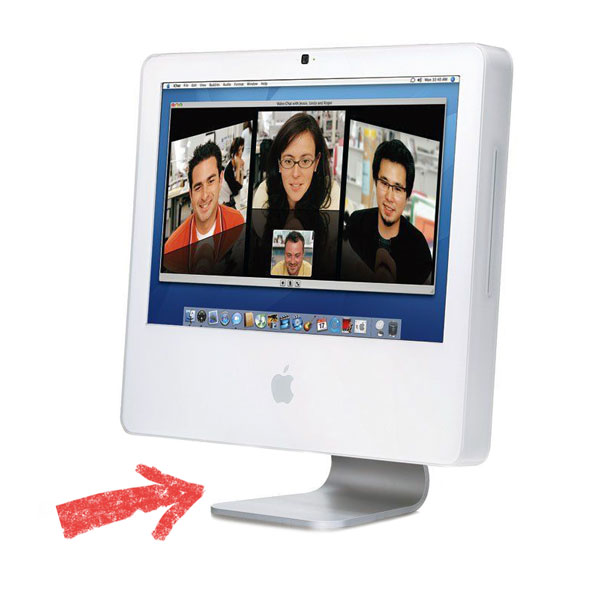 One small letter can make a big difference.
One small letter can make a big difference.
On March 19th, Apple announced the first update to its iMac line in almost two years. While Mac users were happy to see updated iMacs, even the most loyal Apple customers were left wondering — will there ever be a new design?
The "computer-on-a-stand" design has remained relatively unchanged since Apple released the iMac G5 in 2004. Despite growing complaints from Apple users, Apple has not strayed from the iPod-inspired design of the early 2000s. Finally, after more than a decade, information has surfaced as to why the company has been so reticent to update the design.
It turns out Apple accidentally ordered too many aluminum iMac stands — 999,000,000 to be exact. The employee who was tasked with placing the 2004 order for aluminum iMac stands accidentally typed "one billion" instead of "one million." (macOS now corrects the common misspellings to "million" instead of "billion.") Somehow no one caught the error before the order was processed by the Chinese aluminum company.
"It was a pretty big problem. There was no way out of the purchase agreement once the order was placed," said a former Apple who worked in the iMac division. "We didn't even realize the error until several million stands were delivered to the factory. That's when we got concerned."
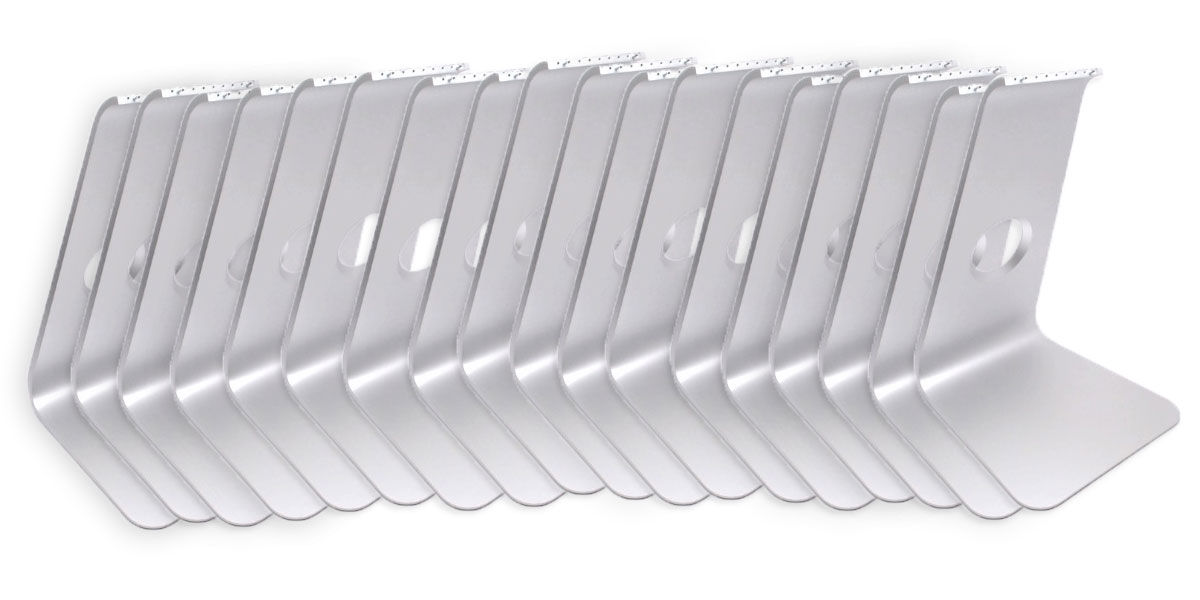
According to an unnamed source, Apple's management team held an emergency meeting to find a solution. They built a 10-year roadmap of iMacs that would all use the same aluminum stand. They also designed new monitors that would incorporate the L-shaped stands. While it was a creative solution, Apple still only used about four million stands per year. After two and a half years, Apple still had 990,000,000 stands left.
Instead of letting the stands go to waste, Apple decided to "recycle" the unused stands, melting them down and turning them PowerBooks and Power Macs, and eventually MacBooks and Mac Pros. But after three years, Apple had still used less than 5% of the aluminum stands they had ordered. In 2007, Apple built aluminum into the original iPhone and made the entire iMac aluminum, as well as the keyboard and mouse.
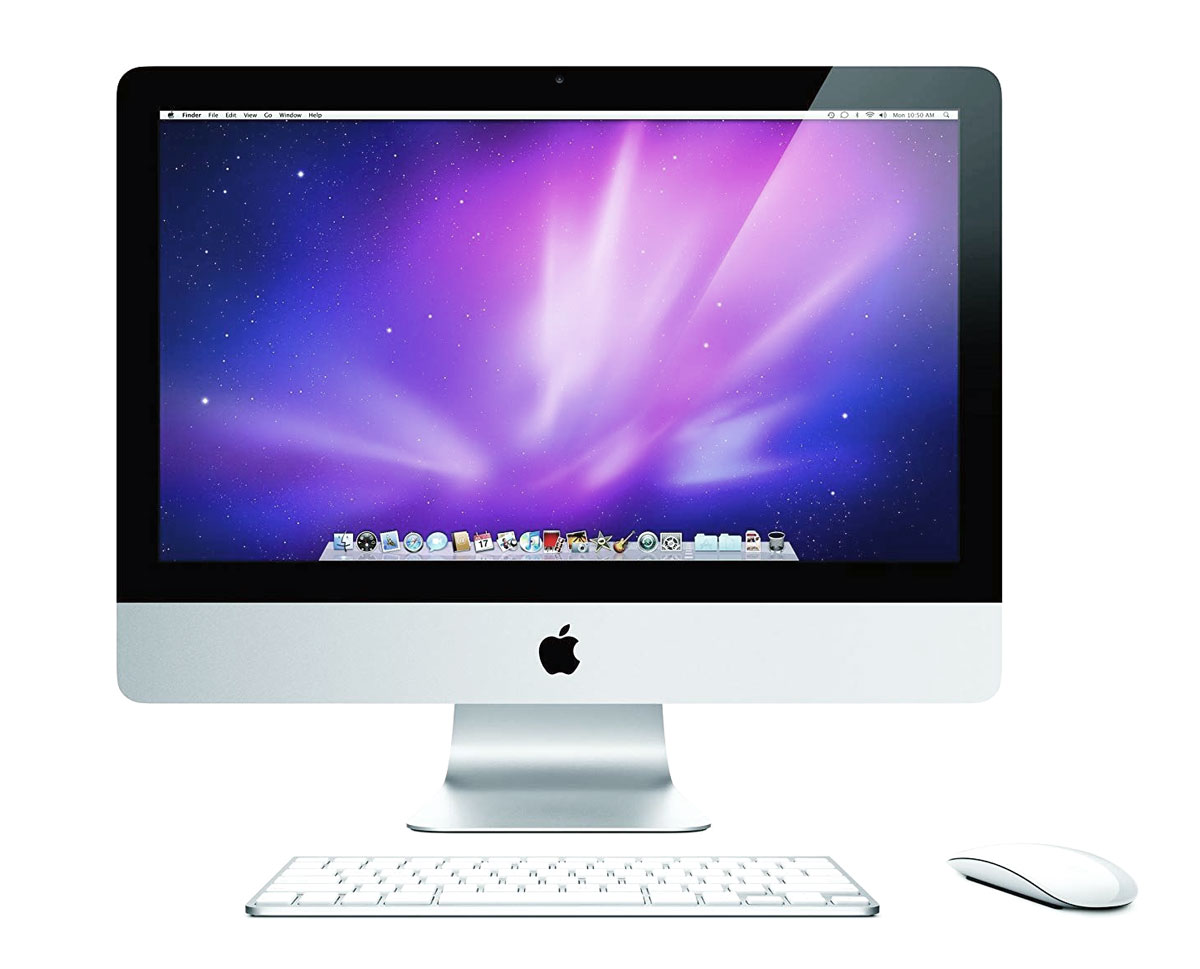
Yet even as Mac sales increased, the problem remained. Ten years later, Apple still had not used up even half of the aluminum stands. Therefore, instead of releasing a new Mac Pro in 2017, Apple decided to make an "iMac Pro" that would use more aluminum. The company built another version of the iMac and just painted it black. As of April 1, 2019, it has been 1,929 days since Apple last updated the Mac Pro.
"It was really unfortunate," said another unnamed source at Apple's iMac division. "We used to be the leader in hardware design. But then we ordered all those dang aluminum stands..." While Apple's operations division approved melting down the aluminum for other products, they have remained firm in using the existing stands for iMacs. The result is that that iMac design has remained unchanged for 15 years despite numerous complaints. A few examples include:
- The components overheat since they are so close to the screen.
- The internal fans spin up too often.
- There is not sufficient room for a high-end graphics card.
- It is almost completely non-upgradable.
- It is difficult to repair or service.
- The ports in the back are difficult to reach.
- The height of the display is not adjustable.
A recent poll revealed more than 90% of iMac users have a book or some type of shoebox underneath their iMac.

The good news is that, 15 years after the fateful typo, Apple has now used roughly half of the iMac stands they ordered. The bad news is that, with 500 million stands still in the warehouse, Apple's hardware design may stall for another decade.
 April 1, 2018
April 1, 2018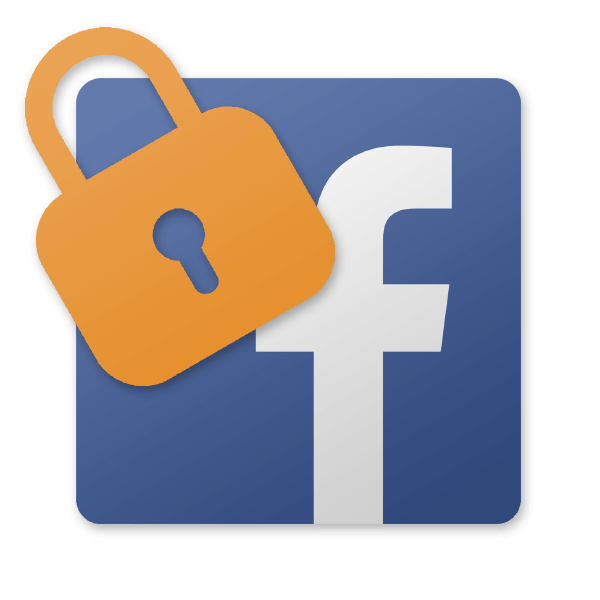 In recent weeks, Facebook has been under fire for sharing user data with the UK-based analytics company Cambridge Analytica. This data is said to have been used for targeting political ads during the 2016 US presidential election. While Facebook has been doing damage control since the news broke two weeks ago, a recent poll is now providing a new perspective on the scandal.
In recent weeks, Facebook has been under fire for sharing user data with the UK-based analytics company Cambridge Analytica. This data is said to have been used for targeting political ads during the 2016 US presidential election. While Facebook has been doing damage control since the news broke two weeks ago, a recent poll is now providing a new perspective on the scandal.
The poll results? 100% of Facebook users do not actually care about privacy.
The poll, published on Facebook, was closed after receiving 15,000,000 votes from users in 150 different countries. It asked a simple question: "Do you care about privacy online? Yes or No."
A stunning 14,999,903 users answered No. The 97 votes for Yes were deemed statistically insignificant and were possibly responses from bots.
The poll results came in quickly because over 5 million of the respondents shared the poll publicly on their timeline. 4 million people who shared the poll included a political opinion. Over 3 million of these posts led to comments in which people started calling each other names that they would never say in real life.
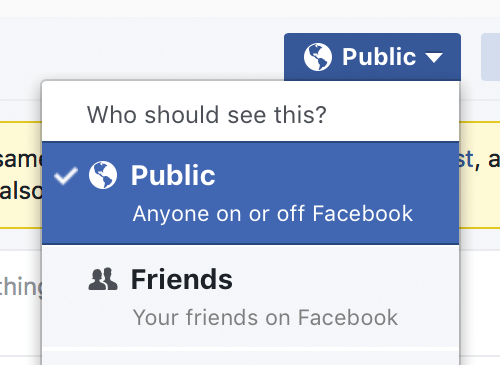
Since the poll officially closed, over 2 million Instagram users have shared the same poll on their public Instagram story. 1.9 million of these users overlaid the poll on top of a gym selfie. 1.8 million of these posts included a caption with a quote about how to live a better life.
In a followup poll, over 50 million Facebook users admitted to complaining about privacy issues, but not actually meaning it. Over 10 million of these users have published at least one post in the past week with the hashtag #deletefacebook but they still have an active Facebook account.
While Facebook continues to grapple with privacy concerns raised by stock analysts and media outlets, the users have already gotten back to what they do best — posting things publicly without thinking twice.
Happy Easter and Happy April Fools. (=^_^=)
 April 1, 2017
April 1, 2017 Japan, a land steeped in tradition, but also known for its technological progress, has just made a stunning announcement. The Japanese language will be completely replaced by emojis.
Japan, a land steeped in tradition, but also known for its technological progress, has just made a stunning announcement. The Japanese language will be completely replaced by emojis.
Japan's language overseer, Iwao Suzuki, made the announcement on the first day of the month, saying, "The leadership of Japan has unanimously voted to use emojis as our primary written language going forward." He said, "We have been planning this change for several years and we believe now is the right time."
Instead of using complex symbols to depict words and phrases, Japanese people will simply be able to tap emojis on a keyboard. For example, "love" can now be written with a simple heart emoji instead of the complicated Kanji character, as shown below.
❤️ vs 愛
"It makes a lot of sense," said Miku Mitsubishi, a Japanese reporter who has been following the developments over the past several years. "Japanese is such a tricky language. You have three different written scripts – hiragana, katakana, and kanji – just for one language. It's too much." She explained, "If we're going to simplify the language to one writing system, emojis is the logical choice."
The announcement coincides with the upcoming release of Unicode 10.0, the new character set coming this summer, that will include over 2,000 emojis (up from the 1,851 existing ones in Unicode 9.0). Apparently, 2,000 emojis was the threshold where Japanese officials felt it was safe to move to an entirely emoji-based language.
When asked how he felt about the change, Japanese official Yuji Kawasaki gave this written statement:
☺️✌️
While many Japanese people are thrilled with the change, others have expressed reservations. 80-year-old Kayoko Honda said, "I spent years learning the Japanese language. I don't feel like starting over. ☹️" Hayata Toyota stated, "I guess this marks the end of the pen and paper for Japan." He continued, "We'll all have to use electronic devices just to communicate. I guess we're already doing that, but still."
In an effort to keep Japanese culture and heritage alive for future generations, the educational panel has made an effort to keep some traditional writing classes in the curriculum. For example, all students will be required to take "Emoji Calligraphy" before graduating from high school.
 April 1, 2016
April 1, 2016 As the economy stabilized during the first quarter of 2016, the values of tech startups have risen to new heights. None is more prominent than Snapchat, which has only been around since 2011. The company was valued at $3 billion in 2014 and $16 billion in 2015. In the first three months of 2016, the company's valuation has skyrocketed to $1 trillion.
As the economy stabilized during the first quarter of 2016, the values of tech startups have risen to new heights. None is more prominent than Snapchat, which has only been around since 2011. The company was valued at $3 billion in 2014 and $16 billion in 2015. In the first three months of 2016, the company's valuation has skyrocketed to $1 trillion.
Snapchat is now worth more than all the FANG stocks (Facebook, Amazon, Netflix, and Google) — combined.
While accelerating user growth would appear to be the reason for Snapchat's lofty value, analysts credit the valuation to the app's incredibly intuitive user interface. "Of all the apps available on the market, Snapchat has the best interface," said Jeff Jeffries from First US Capital, one of the firms confirming Snapchat's thirteen digit valuation. "There simply isn't a more intuitive app available."
Perhaps it the way Snapchat predicted how people would naturally associate light blue boxes with text, red boxes with photos, and purple boxes with videos. Or maybe it is the way the app allows users to continually swipe left or right and eventually end up on the screen they want. It could also be the fact that the only way to access the app's main options is to tap the ghost icon on the top of the camera screen, then click the settings icon in the upper-right corner.
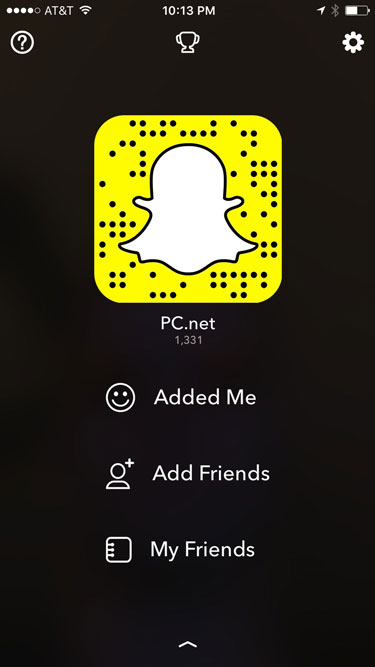
Snapchat's camera screen is the hallmark of what a user interface should be. Besides the ghost icon at the top of the screen, it includes a box outline in the lower left and the standard three-line menu icon in the lower-right. The outline of a box obviously directs users to their inbox, while the menu icon doesn't open a menu, but opens the "Stories" page. What's even better is that these buttons perform the exact same thing as swiping left or right. If you want to access the "Discover" page, simply swipe right when you're viewing the list of Stories. Just don't swipe in the Discover or Live sections right in the middle of the Stories page, or it won't work.
The Snapchat developers may have hit the jackpot in user experience by including several features that nobody understands. For example, the trophy case displays a few trophies achieved by performing the standard Snapchat functions, but lock icons appear for undiscovered trophies with no clues on how to get them. People also love the way Snapchat displays "[username] is typing…" on their device's home screen before a person sends a snap, which appears even if the person doesn't send the message.

Before sending a snap, users can apply a photo filter, which adds an effect to the image. These filters are so amazingly basic, they may well have been created by a freshman computer science student by accident. Additionally, the text overlays are conveniently limited to a single line of text, forcing users to use the draw feature to finish sentences. The alternative text options are just as basic, offering only one font, no effects, and no extra characters.
All these amazing features are secondary to one aspect of the program that singlehandedly represents the quality of the Snapchat app — the icon. The white ghost shape with a black outline on a plain yellow background may be some of the finest artistry the wold has ever seen. The Snapchat icon, which is rumored to have taken a dozen graphic designers three months to create, showcases the attention to detail embraced by the Snapchat development team.
It is rumored that the icon for the next version of Snapchat might include a slight gradient. The updated icon could push Snapchat's value upwards of $2 trillion. Happy April Fool's.
 April 1, 2015
April 1, 2015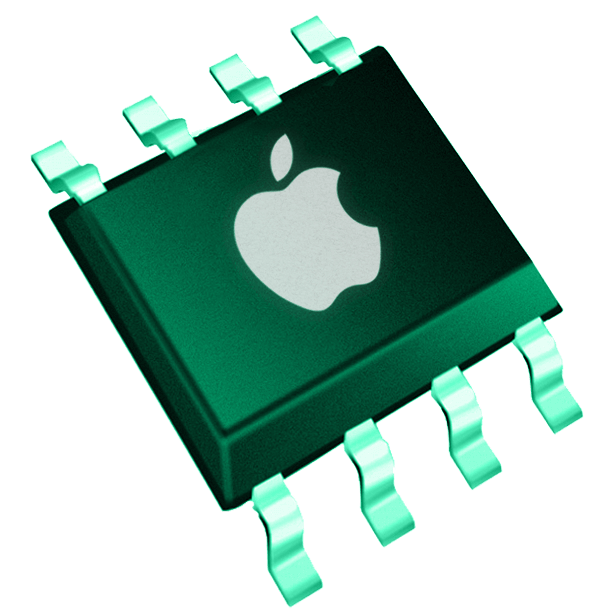 Just weeks before the global launch of the Apple Watch, rumors have surfaced of the next Apple device — the iChip.
Just weeks before the global launch of the Apple Watch, rumors have surfaced of the next Apple device — the iChip.
Only a few details have leaked so far, and the device is said to be the first of its kind in the new "embedded" market. While wearables, such as wristbands and watches, are expected to remain popular for several years, Apple is betting that embedded devices will eventually become the preferred option.
No verified photos of the iChip have surfaced yet, but according to reputable sources, it is a thin integrated circuit designed to be placed underneath a person's skin. The designated placement of the chip in the human body is yet to be determined, though most analysts believe it will be placed in a person's wrist or top of the hand.
The iChip includes a built-in screen that can display similar data as the Apple Watch, including the time, calendar, text messages, heart rate, and activity level. It uses a display technology called HIOLED (High Intensity Organic Light Emitting Diode) that provides additional luminosity to make it visible through a person's skin. TTCS (Transitive Touch Capacitor Surface) technology allows users to control the device like a traditional touchscreen without actually touching the screen itself.
Perhaps the most impressive feature of the iChip is that it does not contain a battery. Instead, the chip is powered organically by a person's blood flow. Once the iChip is installed, it never needs to be recharged. This is consistent with Apple's leaked marketing slogan, "Always in, always on."
The iChip is expected to have built-in Wi-Fi and Bluetooth receivers, allowing it download over-the-air updates and sync with other devices. The included GPS receiver will allow it to track users' daily activity and location. A unique identifier included in each device will allow users to automatically authenticate with a wide variety of security systems, including Apple Pay, iPhones, home security systems, and automobiles.
The embedded nature of the iChip will make it arguably the most convenient product Apple has ever created. However, it also poses some new challenges, such as how to install and replace the device. Apple is rumored to be building "installation hubs" where early testers of the device can have the iChip installed using minimally invasive robotic equipment. Analysts expects these hubs will be rolled out to Apple Stores across the globe when the device is released next year.
Happy April Fools.
 April 1, 2014
April 1, 2014 Twitter announced today it unexpectedly reached the maximum number of tweets. The popular social networking service can no longer accept new posts from its users. Twitter's technical team has issued an official statement saying, "The system is full."
Twitter announced today it unexpectedly reached the maximum number of tweets. The popular social networking service can no longer accept new posts from its users. Twitter's technical team has issued an official statement saying, "The system is full."
When asked how this happened, Twitter co-founders Evan Williams and Jack Dorsey said they vastly underestimated how often people would post updates on Twitter. "We designed Twitter as a platform for sharing profound thoughts and ideas," stated Dorsey. "We had no idea people would publish updates about the sandwiches they are eating or their dog's half birthdays." Williams said unimportant tweets now make up 99.98% of updates published on Twitter.
"Based on our original estimates, we expected to run out of tweet space in the year 2134. We were off by 120 years," stated co-founder Biz Stone. "In retrospect, we should have made Twitter more scalable." Co-founder Noah Glass also expressed remorse in their oversight. "Several consultants suggested we design the service to be flexible, scalable, and extensible. However, those all sounded like buzzwords, so we dismissed them."
Shocked analysts are trying to figure out what to make of Twitter's future. "This sure is a darned thing to happen just a few months after the company went public, said Piper Jaffray analyst Craig Johnson. "Clearly Twitter will need to find other ways to grow outside social media, which happens to be their only industry." He maintained a Strong Buy rating of Twitter (TWTR) in light of the recent news.
While engineers are unable to expand Twitter's capacity, they are working on other ways to alleviate the problem. Some are considering deleting old tweets. One technician even suggested deleting the entire database. "After all, what would really be lost? #nothing," he remarked. Another developer suggested reducing the maximum number of characters per tweet from 140 to just 10, so this problem won't happen again for a long time.
While Twitter's woes may seem like good news for Facebook, the other popular website appears to have its own problems. Founder Mark Zuckerberg just announced the Timeline feature was accidentally programmed to expire on January 1, 2015. When asked what will happen then, Zuckerberg said, "Besides all the accounts being deleted, I don't know." At least for the next few months, users will have some place to post frivolous comments about their lives.
Happy April Fools.
 April 1, 2013
April 1, 2013 Are you frustrated with same-day delivery because it just isn't fast enough? If you want to receive your online order in minutes instead of hours, Amazon has the solution for you.
Are you frustrated with same-day delivery because it just isn't fast enough? If you want to receive your online order in minutes instead of hours, Amazon has the solution for you.
The e-commerce giant announced today that its rumored underground project is, well, underground. A spokesperson for the company revealed Amazon has started building tunnels throughout the United States in order to create a domestic underground shipping system. The goal of the new "Amazon Tube" service is to provide customers with their products in as few as five minutes after an order has been placed.
Amazon has already installed the infrastructure for the tube system beneath its main fulfillment centers. Each distribution point will connect to multiple pipelines that will serve as the underground system's backbone. The largest tubes will travel across state lines, while medium-size tubes will filter items to different cities. Small "minitubes" will carry items directly to business and residential addresses. An underground Wi-Fi network will guide each item using a wireless transmitter attached to each package.
While the tube-based delivery system may seem like a complicated engineering problem, Amazon has developed a simplified solution. Instead of a traditional box, each product ordered with Amazon Tube delivery will be placed in a spherical package that can easily roll through a tube. In order to transport items over long distances, Amazon has implemented a series of downward sloping underground tunnels and pulleys to keep items moving. Vacuum pressure will be used to suction each item to its final destination.
Amazon CEO Jeff Bezos promoted the new service saying, "We are thrilled to offer this convenient service to our valued customers. Amazon.com revolutionized the way consumers buy products, and Amazon Tube will revolutionize the way these products are delivered." He added, "We know that overnight shipping can be annoyingly slow and we believe we have developed the perfect solution." A company representative said the new delivery service will be free to Amazon Prime members, but will cost $80 per item for customers who have not already been pressured into signing up for Amazon Prime.
Amazon Tube is currently in the trial phase and is only available to a select number of households near the company's Seattle headquarters. These users, not-so-creatively called "test tubes," are already enjoying same-hour delivery of many of their favorite products. The company plans to roll out Amazon Tube nationwide by June 30, 2075.
 April 1, 2012
April 1, 2012Less than one month after releasing the new iPad, Apple has uncharacteristically revealed its plans for the next model. While several improvements were noted, the most dramatic was the addition of a physical keyboard.
According to an Apple representative, the company has recently been evaluating how to improve the ease-of-use of the iPad. The lack of a real keyboard has continually been the number one complaint. Therefore, Apple has confirmed the next iPad model will look similar to the current version, but will also include a fold-out keyboard.
One of Apple's lead designers said the keyboard will fold out on a hinge that connects the keyboard and the screen. "It's really a great design concept," he said. "You'll be able to just set the iPad on the top of your lap and easily type documents and email messages. When you aren't using the device, you can fold the keyboard against the screen and place the iPad in your backpack or a small carrying case."
Another engineer mentioned the new keyboard will include a small rectangular surface that acts as a mouse. This surface will reportedly allow users to move a cursor on the screen by dragging their fingers across it. He also stated the next iPad will include multiple USB ports on the sides. These ports will allow users to the iPad to connect common I/O devices, such as printers and digital cameras.
"We're really excited about these improvements," stated an Apple spokesperson. "We expect the new keyboard to be a hit with consumers, especially with people that actually want to do something productive with their iPads." She went on to say that a desktop version of the iPad was also in the works. The desktop model will have a much larger screen and will use a keyboard and mouse rather than a touchscreen interface. "We're thrilled with how much work people will be able to get done with this type of device," she said. Instead of iOS, the desktop iPad will run Mac OS X.
While the name of the next iPad has not been determined, a few of the names Apple is considering include "the next iPad," "the new new iPad," "the iPad Four," and "MacBook Pro."
View previous April Fool's stories.
 April 1, 2011
April 1, 2011According to a recent report, the mouse and keyboard are on their way out. Thanks to advances in touchscreen technology, the standard input devices we have grown accustomed to will be obsolete by next year.
Several leading technology companies have already made plans to move on from the traditional keyboard and mouse. Apple announced it would not support "old fashioned" input devices in the next version of Mac OS X, which is slated for release this summer. When asked about the decision, CEO Steve Jobs stated, "People don't use computers to type documents anymore. They prefer to browse the Web, read books, and play 99¢ games." He also mentioned the iPhone and iPad were the computers of the future. "These devices are much more fun to use than a clunky desktop or laptop computer," he said. "By removing support for the keyboard and mouse in Mac OS X 10.7, we are making computing more enjoyable for everyone."
Microsoft, the world's leading software developer, also announced plans to phase out the aging keyboard and mouse. CEO Steve Balmer said, "Windows has supported touchscreen input for many years. We have been waiting for the right moment to completely eliminate the keyboard and mouse, and now is the time." Windows 8 is rumored to not include any device drivers for keyboards or mice. Additionally, the system will immediately delete any mouse or keyboard drivers installed by the user. Balmer backed the company's decision saying, "The future of computing is in the cloud. You don't need a mouse and keyboard when you're working in the cloud."
So how will computers of the future be controlled, if not with a keyboard and mouse? According to a U.S. government mandate, all displays manufactured in 2012 or later must include touchscreen capability and consume 90% less energy than current models. Additionally, companies like Logitech and Kensington are busy developing new input solutions. Logitech is reportedly working with Nintendo on a 3D motion device that allows users to control their computer by simply moving their hands. Kensington is rumored to be developing some type of flat surface with no buttons, but no one knows exactly what it is or how it will be used.
According to industry experts, the abandonment of the keyboard and mouse is a huge step forward in computing. After all, pushing buttons on a screen is much more comfortable than using an ergonomic keyboard and mouse. Everyone knows it's much faster to type on a tablet than an actual keyboard. And who needs a mouse when you can simply use your finger point to shiny objects on a screen? Oh keyboard and mouse, you will be missed.
View previous April Fools' stories.
 April 1, 2010
April 1, 2010The United States Congress passed a sweeping heath care reform bill last week, providing health insurance for all Americans. While the bill has been the source of much debate, a small section of the 1,000+ page bill been largely overlooked. Unknown to most citizens and lawmakers alike, the bill includes a clause that allows personal computers to be among those eligible for health insurance.
The secretive section of the bill states that computers with pre-exisiting conditions, such as viruses and malware will be covered under the new plan. Computers with failing hard drives and power supplies will be covered as well. The covert clause provides coverage for all computers, including desktops and laptops, though laptops will have to pay an additional monthly premium.
Computer users have expressed mixed feelings about the bill, but some are optimistic. Bob, who was shopping for a new PC when interviewed, said he was in favor of the bill. "This is great," he replied. "I guess I don't have to buy the extended service plan now." However, after talking to the salesperson, then the manager, then the salesperson again, he decided to buy the service plan anyway. Lisa, a high school student, seemed indifferent about the bill, responding, "What's a virus? All I do with my computer is use Facebook. Wait, I'm getting a text message, hold on... Sorry, what was the question?"
Computers themselves seem excited about the bill, though some have expressed concern over the bill's fairness. Myron, a new Windows 7 based PC, stated, "It doesn't make sense that an older computer with a much slower processor and half the RAM is now eligible for the same health coverage as me." Amy, a one-year old iMac also expressed frustration, saying, "I've been virus-free for years, and now all these other computers get to join the same plan as me? C'mon people, think different." Hal, an older Unix-based system, output the message, "00101101010010110101."
Critics have also questioned the financial viability of the bill. Since insurance companies will not be allowed to deny coverage to computers regardless of the make and model, some economists predict health insurance costs will skyrocket. Others point out that with computers living longer than ever before, the new policy will simply not be sustainable. However, supporters of the bill insist that the concern over the "computer care" section is unwarranted. One supporter of the bill stated, "We're already spending over a trillion dollars that we don't have, what's a few billion more?"
The author of the PC provision is still unknown. When asked about the newly discovered article, a Republican congressman responded, "We never had anything to do with the bill to begin with. Don't blame us." A spokesperson for the Democratic party also denied knowing exactly who included the computer clause in the bill. However, he did state that the final version of the bill was printed from a computer that was later found to have a bad hard drive and a virus.
Read previous April Fool's stories.
 April 1, 2009
April 1, 2009The economic downturn claimed another victim today as the Internet announced it is filing for bankruptcy. The global organization stated it has run out of bandwidth reserves and cannot continue to operate.
According to inside sources, the primary factor that led to the Internet's downfall was the purchase of too many sub-prime domain names. The U.S. government recently denied the DNS's request for a bailout, saying the organization had already been given billions of IPs, many of which are still not accounted for. The Internet's restructuring plan has also been criticized as simply virtual reality and nothing more than cyberspace. The last glimmer of hope faded when merger talks between the Internet and the intranet broke down last week after a combined subnet mask could not be finalized.
Several e-commerce companies that rely heavily on the Internet had lobbied tirelessly to save the global network, saying it was too big too fail. They emphasized the fact that the Internet is deeply linked to millions of websites across the world. Lobbyists also pointed out that if the Internet were to fail, it would negatively affect the pharming and phishing industries. However, many analysts have questioned the viability of the Internet, saying the organization's site map is far too complex and outdated to be successful. Some politicians supported the idea of breaking up the Internet into smaller entities, including the Web and E-mail. However, these and other anonymous requests were blocked by a firewall.
While the collapse of the Internet will change the world as we know it, some see a silver lining. There will be far less jargon too keep up with, and words like spam and cookie will go back to being food items. Social networking can once again be done in person and blogs can be written using a pen and paper. While the transition may be difficult for some, many are looking forward to taking some much needed time offline.
Read previous April Fools stories.
 April 1, 2008
April 1, 2008Gabby Talksalot has had a bad day. And it's all because of what she calls "a complete invasion of privacy." Read her story to find out why.
"It all began when I got to school and talked with my boyfriend. He said he wasn't sure if he wanted to go out with me anymore. I was like, 'W/e, idk wat ur talking about!' He told me he read some stuff in my blog where I described my feelings for him. He said it was just too mushy for him to handle. As if! I can't believe he read my personal blog! That is so not cool. He should be ashamed of himself. I don't want 2 talk 2 him anyway. Though I really hope he calls me.
"A a few hours later, I ran into my BFF Amy on the way to class. She said she was really upset with me since I didn't invite her to the party last Friday. I could only bring one person, so I went with my BFF Sarah, since it had been like 4ever since we hung out. But I had rly hoped Amy wouldn't find out because I knew she would ttly want 2 go. I guess she saw a bunch of pictures I posted on my Facebook profile that I took at the party. I mean I only posted like 78 photos, so I'm rly surprised Amy noticed. I can't believe she would pry into my personal life like that. It's her fault for being so nosy.
"Then I got home, and my mom was like, 'Is it true that you skipped school yesterday?' I was like, 'WDYM?' She was like, 'Well, the pictures you published in your MySpace album last night, entitled "Skipping School," made me wonder.' I was like, 'OMG mom! WRUD prying into my personal life like that?' She actually viewed the photos in my MySpace album! How inconsiderate! I was like, "I only skipped one class, and it wasn't even a BD." But then my mom grounded me anyway.
"So I went to my room and blogged about my day. Then, like an hour later, I had all these new posts from total strangers saying how like not smart I was. I mean, I added them all as friends, but I've never met them, so I can't believe they would write on my wall like that. I hope they don't view my photos too. It's just such a complete invasion of privacy! I mean, 4 serious. This has been worst day ever."
When asked about how she intends to deal with the situation, Gabby replied, "IDK, I think I just need to blog about this right now. Maybe I'll take some pictures of myself that show how depressed I am and post those too."
Happy April 1st, and remember to always use discretion in what you post on social networking websites or anywhere else online.
 April 1, 2007
April 1, 2007Recently, there has been growing public concern about the environment. Whether it is because of high gas prices, the results of global warming studies, or for other reasons, many people have taken a renewed interest in protecting the environment. This concern has not gone unnoticed by several major computer manufacturers, which have decided to jump on the environmentally conservative bandwagon.
Several computer companies have announced plans to build new environmentally-friendly computers, called eco-machines. Each company plans on incorporating unique measures to help reduce waste and save the environment. The following are a few examples of eco-machines announced by some well-known manufacturers.
Dell - The number one computer manufacturer will be introducing a new line of computers that will save resources and cut costs at the same time. Dell says it will ship its eco-friendly desktop computers in flat-packs, IKEA-style. Each computer will arrive in a flat cardboard box, no more than two inches thick. The computer will need to be assembled by the owner using a manual that describes each step using simple drawings.
Hewlett Packard - HP, well-known for its inkjet and laser printers, plans on taking the "multifunction printer" or ("MFP" for those in the know) to a new level. HP's new system, called the "MFPC," will be a computer/printer/scanner/copier device that incorporates a full printer, scanner, and copier into the computer itself. Some models will also include a fax option. HP says a single slot will be used to load paper as well as CDs, DVDs, and memory cards.
Sony - Sony's new systems will use a breakthrough media format that requires absolutely no energy to read or write to. However, the format is unlikely to catch on because it uses proprietary technology that can only be read by Sony products. The Japanese computer manufacturer also claims their new computer line will get better gas milage than American computers.
eMachines - The low-cost PC manufacturer plans to produce computers that are completely biodegradable. Once the computer becomes obsolete, the user can press a key combination that will cause the computer to overheat and burn itself up. The keyboard shortcut that starts this process is rumored to be "Control-Alt-Help."
Apple - The new ecoMac will be built using a combination of recycled Apple IIe parts and plant soil. In order to run efficiently, the machine will need to placed in direct sunlight and should be watered at least once a week. To save additional power, the user can choose from three performance levels including "Low," "Ridiculously Low," and "Hardly Even Running." The ecoMac will be Apple's first product to sport the new case color "recycled brown."
 April 1, 2006
April 1, 2006A few weeks ago, Microsoft announced the company would not be shipping the next version of Windows, called Windows Vista, until January, 2007. This announcement followed an already long string of delays dating back to the original "release date" of 2005.
But today, Microsoft trumped all previous delays when it announced that the Windows Vista operating system would be delayed indefinitely. The release date is now officially "TBA" according to the press release. Some company insiders have also been heard referring to the release date as "sometime" or "whenever." Microsoft programmers joked that the release date is "null," implying it is undefined.
When a Microsoft representative was asked about indefinite delay, she said, "We sincerely apologize about the delay. To be honest, our programmers haven't even started on it yet. We keep almost working on [Windows Vista], but then something comes up and we put it off."
While dozens of computer manufacturers and millions of customers become increasingly impatient, Microsoft plans to temper their agitation by releasing several more Windows XP Service Packs. "New service packs consistently provide new bugs and security holes, which allow us to release more patches," said a senior engineer from the company. "This makes it seem like we are actually accomplishing something."
Meanwhile, Apple Computer has commercially released Mac OS X 10.2, 10.3, and 10.4 since Windows XP was introduced. Apple plans to release Mac OS X versions 10.5 through 11.2 and 73 new types of iPods by the time Windows Vista is finished.
 April 1, 2005
April 1, 2005A recent study shows that after just 3 months into the year, the number of people using the Internet has dropped by a staggering 80 percent. While the number of Internet users has steadily increased over the past two decades, that trend has quickly reversed itself, according to the latest statistics. The numbers show that the Internet's popularity reached its peak in late 2004, but has just fallen off a cliff in 2005.
"The news is astonishing," said a market researcher from New York. "We just figured the Internet would keep growing and keep attracting more users. Apparently, we were wrong." A reporter from Seattle said she thought the growing trend of the Internet users would slow down, but not so drastically. "We saw signs of a slow down a few months ago," she said, "but nothing like this. No, not like this..."
While the significant drop in Internet usage comes as a shock to many, there are a number of people who don't seem to be surprised. Joe, a skateboarder from Minneapolis said, "I knew this whole Internet thing was just a fad. I don't understand why everybody made such a big deal out of it." Mark, a graduate student at Stanford University said, "Personally, I stopped using the Internet for research several years ago. It's just easier to go to the library and search through books on the shelf." Ashley, a high school cheerleader said, "I used to IM my friends all the time. But I missed talking to them, so now we get together and talk to each other in person. It's just, like, a lot more fun."
The news is already leading to major changes at some big companies. Bill Gates responded to the report saying, "This certainly means we need to shift our course at Microsoft. We are considering dropping the development of Internet Explorer, since it looks like there just won't be too much to explore in the coming years." He also noted that the company's next version of Windows, code-named Longhorn, would be delayed again by several years. Steve Jobs of Apple admitted the decline in Internet users would hurt sales from the iTunes Music Store, but he remained optimistic. "We are selling a ridiculous amount of iPods every day, so we're not too worried. The Internet was fun while it lasted, but we at Apple plan on innovating in other areas."
"Fun while it lasted." That seems to be the public's general consensus concerning the Internet. Yes, it was certainly one wild ride, but alas, all good things come to an end. At the current rate of decline, the number of Internet users is projected to be in the single digits by the end of the year. For most of us, it looks like it's back to the library and the post office.
Happy April Fools.
 April 1, 2004
April 1, 2004After seeing Apple's overwhelmingly successful iPod and iPod mini take over the personal music player market, Microsoft has decided to get in the game as well. The company announced plans to introduce the "Portable Media Center" (PMC) in the coming months. The pocket-size device was originally developed to play music, movies, and television. However, in recent weeks, the company announced a revision to the PMC that takes the technology to a completely new level. "The new media player will not only be able to play all your media files, but will also be able to make you coffee in the morning," explained a Microsoft spokesman. Representatives from the company declined to comment on how the technology would be implemented in such a small device.
Not content to stand on its heels, Apple Computer announced the next revision to the iPod, called the "iPod Macro." The upcoming iPod will not only play songs, but will also make coffee, tea, and include a built-in toaster. Griffin Technologies, a popular Apple accessory manufacturer, is reportedly working on a baby monitor adapter for the iPod Macro. The adapter will allow busy parents to listen to their baby in another room while simultaneously grooving to the latest Nora Jones tracks. The device is said to be only 3mm thicker and 4mm wider than the current iPod, but will weigh roughly 18 pounds.
After hearing the buzz about the two companys' pretentious portable player plans, Sony Corporation also decided to get in the action. The electronics giant announced plans for the new "Media Monster" device, which has been described as the Leatherman® of portable media players. According to a Sony representative, the new gadget will play MP3, AAC, WAV, and AIFF audio files as well as stream audio from regular radio frequencies, satellite radio, and the Internet. The device will also play all types of digital video formats and will support DVD, VHS, and even Beta. It can make coffee, tea, toast, can process cheese, and can serve as both a refrigerator and an oven. Sony claims the device can also be folded up and used as a football. Pressing a special code on the football will transform the device into an electronic dog that responds to commands, performs tricks, and avoids obstacles when it walks.
All three companies declined to provide release dates for the products.
 April 1, 2003
April 1, 2003On March 19, former Vice President Al Gore joined the Board of Directors at Apple Computer. His history of helping advance technology in the areas of education and science is seen as a valuable asset to Apple. While some have acclaimed Gore for his technology initiatives as Vice President, he has also received scorn from others for claiming he "invented the Internet."
When recently asked about his statement, Gore responded, "I don't know why people don't believe me -- it must be because I was part of the Clinton administration... and I guess that's a pretty valid reason. But it should not discount the fact that I invented the Internet."
Though only in his first days as a member of the Apple board, Gore has already taken credit for the iMac, the iPod, and the original Macintosh computer. "I am so glad that I created all of those wonderful things," he said during a recent interview. "I am as proud of the Macintosh as I am the automobile, which I invented some time in the early 1900s." When asked about his age, the former Vice President declined to comment.
Happy April 1st.
 April 1, 2002
April 1, 2002In a recent press conference, Apple announced their new iMac design was already getting old and planned to release a new iMac next week. While sources differ in their information, it appears that the new iMac will ship with a G3 processor, a 2 GB hard drive and 16 MB of RAM. While this seems like a substantial downgrade from the current model, CEO of the company, Steve Jobs, has a different opinion. "We plan on shipping this new iMac in a bunch of different colors. We expect high demand for the new models, because people like colors. And that's what we're going to give them." Besides the color, the new iMac will look just like the current model and cost the same, but the screen will be sold separately. Apple representitives claimed the higher price was due to "things in Asia."
In a related story, graphics hardware giant, NVIDIA, announced they would be renaming the GeForce2 chips that ship with the Apple iMacs. "We named the chips 'GeForce' because it nearly rhymed with "G4," said an NVIDIA spokesperson. "We noticed a performance increase of nearly 80% when the graphic chip's name was close to the name of the CPU." To compensate for the new G3-based iMacs from Apple, NVIDIA is planning on changing the name of the chip to the "GeThreece333." Next month, the company plans to release a chip called the "Mentium Horse" that will ship with Pentium 4 computers.
In the PC world, Gateway and Dell announced they were also working on completely revamping their computer designs. Dell representatives claimed the new machines would use a slightly lighter shade of beige, while nothing else would really change. Gateway announced their new design would feature nothing new, but that a small stuffed animal in the form of a cow would come in each box. Microsoft also announced a major upgrade to their highly-acclaimed Windows XP operating system. A Microsoft representative stated the new version will feature the same bugs and security holes as the old version, but it will include a new start-up chime. The upgrade should be available in one and a half years.
Happy First of April.
 April 1, 2001
April 1, 2001In a surprise move today, Adobe Systems announced it would aquire its main competitor, Macromedia. When asked why the merger took place, Adobe replied, "Macromedia has stolen so many of our ideas that we decided to just steal their entire company." After finding out about the merger, Apple Computer decided to jump on the bandwagon and aquire the new Adobe-Macromedia entity. In a press conference, Steve Jobs stated, "Without those two companies, we would have gone under a long time ago. I just felt it was my duty to pay them back by buying them out." Two hours later, 5000 job cuts were made and 2000 employees received notices saying they would be working full time on Apple's new operating system, Mac OS X.
Shortly after Apple's announcement, Bill Gates saw his chance. After just three hours, Microsoft completed a hostile takeover of Apple's new company. Apparently, Gates paid for it in cash. When asked why he bought the new and improved Apple company, Gates replied, "It's really no secret that our innovation and graphics departments suck. I think this is a step in the right direction." Immediately after the announcement, Macintosh fans around the world began rioting and pirating Microsoft software. Gate's innovation team creatively named the new company "Microsoft."
Just when news teams across the globe thought that this merger fiasco was over, a new player stepped into the arena. About an hour ago, the anouncement was made that the new Microsoft company, now known as "Microsoft," was being aquired by Sony, who saw this as a "golden opportunity to reach the company's goal of world domination." After all, everybody owns something made by Sony. But it doesn't end there. Just a few minutes ago, Sony announced that it had just been taken over by Yamaha, who makes musical instruments, professional audio products, snowmobiles, watercraft, factory automation products, and tennis racquets. In the press release, Yamaha spokesperson, Yee Chong Ku, said, "We make everything; this is just icing on the cake."
So, as the current situation stands, the world is now being held hostile by Yamaha Corporation. Though this may seem like a horrible string of events, most analysts believe it could have been worse. "Hey, at least we're not all hostages of Funai or Symphonic," said one Wall Street reporter. According to Bloomberg news correspondent, John Johnson, "Thank goodness Radio Shack didn't get involved. People only go there to buy cables and connectors."
So there you have it. The latest news -- straight from Sharpened.net. As always, sharpening your knowledge of computers and the Internet. Happy April Fools' Day.
News Archive
 April 1, 2024
April 1, 2024



















 Are you frustrated with same-day delivery because it just isn't fast enough? If you want to receive your online order in minutes instead of hours, Amazon has the solution for you.
Are you frustrated with same-day delivery because it just isn't fast enough? If you want to receive your online order in minutes instead of hours, Amazon has the solution for you.